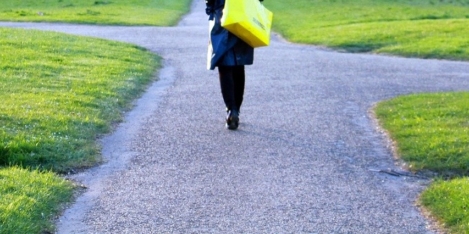To provide the best experiences, we use technologies like cookies to store and/or access device information. Consenting to these technologies will allow us to process data such as browsing behaviour or unique IDs on this site. Not consenting or withdrawing consent, may adversely affect certain features and functions.
The technical storage or access is strictly necessary for the legitimate purpose of enabling the use of a specific service explicitly requested by the subscriber or user, or for the sole purpose of carrying out the transmission of a communication over an electronic communications network.
The technical storage or access is necessary for the legitimate purpose of storing preferences that are not requested by the subscriber or user.
The technical storage or access that is used exclusively for statistical purposes.
The technical storage or access that is used exclusively for anonymous statistical purposes. Without a subpoena, voluntary compliance on the part of your Internet Service Provider, or additional records from a third party, information stored or retrieved for this purpose alone cannot usually be used to identify you.
The technical storage or access is required to create user profiles to send advertising, or to track the user on a website or across several websites for similar marketing purposes.
 A new study by Mercer claims the COVID-19 pandemic and subsequent uncertainty are accelerating changes in the way organisations around the world are working and will continue to work into the future. Particularly in challenging times, employers are focusing on their workforce, specifically fostering healthy lifestyles, supporting financial wellness and providing skills and training as careers change due to AI and technology developments. (more…)
A new study by Mercer claims the COVID-19 pandemic and subsequent uncertainty are accelerating changes in the way organisations around the world are working and will continue to work into the future. Particularly in challenging times, employers are focusing on their workforce, specifically fostering healthy lifestyles, supporting financial wellness and providing skills and training as careers change due to AI and technology developments. (more…)







 The Coronovirus outbreak and the worldwide reaction to the pandemic will force companies to radically rethink how they operate and embrace technological investment, claims global tech market advisory firm, ABI Research. In its new white paper,
The Coronovirus outbreak and the worldwide reaction to the pandemic will force companies to radically rethink how they operate and embrace technological investment, claims global tech market advisory firm, ABI Research. In its new white paper, 
 When faced with a moral dilemma, people usually respond in one of three ways, and the moral decision changes according to the setting, claims recent research from
When faced with a moral dilemma, people usually respond in one of three ways, and the moral decision changes according to the setting, claims recent research from 






 Working in multidisciplinary teams makes work more enjoyable and means that customers receive a better service claims new research from
Working in multidisciplinary teams makes work more enjoyable and means that customers receive a better service claims new research from 
















March 25, 2020
Loneliness has always been a workplace issue
by Nigel Oseland • Comment, Wellbeing, Working lives, Workplace design